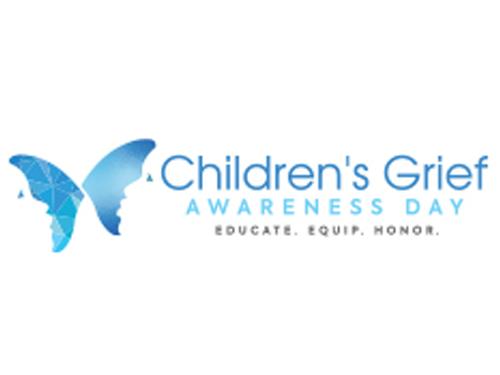How can we help?
888-283-1722
Call us now at 888-283-1722
24/7 Referrals and Nursing Support
Voices of Care Blog

4 Ways to Support Children During Disturbing Times
Posted on May 25, 2022 by Care Dimensions Children's Program StaffThis week, the nation is once again dealing with immense grief, this time over the killing of 19 elementary school children and two teachers in Texas. The loss is almost too much to comprehend. And for kids, even just hearing the headlines can generate fear, sadness, and feelings of uncertainty.
It can be confusing to know how to talk to our children about topics like this one, but avoiding the disucssion doesn’t make it go away. We encourage you to speak openly as a family, while also being mindful of what is age appropriate.
Here are four ways parents can help their children deal with frightening news:
1. Monitor your children’s exposure to television, radio, social media
The news can be helpful, but it can also be scary. Watching the same news clips over and over could lead to secondary trauma and cause your children to become more frightened. Monitor and limit how much television your children are watching, how much radio they are listening to, and their exposure to social media, especially before bedtime. Now may be the time to set more guidelines regarding the media sources they are allowed to access.
2. Ensure safety as much as possible
Even though it may seem our world is unsafe, it is important for your children to feel a sense of safety in their day-to-day world. Talk to them about the people who can help keep them safe, including the adults in their home and school, and the first responders in their community. Also review the safety plan in your own home and at school, and what they can do if they ever feel unsafe (call 911, tell a trusting adult, etc.).
3. Answer questions honestly, and simply
Kids have big imaginations and sometimes fast-traveling rumors at school can appear to validate a story. Encourage your children to come to you with questions, and answer them honestly, yet simply. Follow their lead about how much information they are seeking, and start with simple answers. Remember, it’s okay to not know an answer. When this happens, simply validate how hard it can be to sit with the unknown and ask about what they think they answer might be.
4. Tell stories about the helpers; encourage your children to find ways to help
Tell your children stories about the people who are helping in times of tragedy. Talk about stories of the people who are saving others, who are giving back in the form of monetary donations, or donating blood, supplies, etc. Encourage your family to come together to find a way you can help (host a bake sale or a tag sale and donate the proceeds to a local charity). Find ways to advocate and promote change to make your community better and safer.
For resources to help children deal with grief, visit our Children’s Programs page.
Additional Posts
Tips for Caregivers of Grieving Children with Developmental Delays
Posted on January 22, 2026 by Bridget McHallam, Child Life Intern in ChildrenWhen children with developmental delays experience loss, grief can look different. This article explores how children understand death and offers practical ways caregivers can provide comfort and support. ...
Continue readingMemory Making Activities for Children Before and After a Death
Posted on November 17, 2025 by Bridget McHallam, Child Life Specialist Intern in ChildrenFor many children and teenagers, engaging in memory-making activities can be a meaningful way to express love, connection, and remembrance. Here are some suggested activities. ...
Continue readingChildren's Grief Awareness Month: Why it Matters
Posted on October 28, 2025 by Kasey Griffin, MS, CCLS in ChildrenEvery November, we recognize Children’s Grief Awareness Month. Here are some tips on how you can help children who are grieving. ...
Continue readingAnyone—patient, family, care provider—can make a referral. Fill in the form online or call us today.
Since 1978, Care Dimensions, formerly Hospice of the North Shore, has provided comprehensive and compassionate care for individuals and families dealing with life-threatening illnesses. As the non-profit leader in advanced illness care, we offer services in over 100 communities in Massachusetts.
Copyright 2026 | Care Dimensions, 75 Sylvan Street, Suite B-102, Danvers, MA 01923 | 888-283-1722 | 978-774-7566 |









